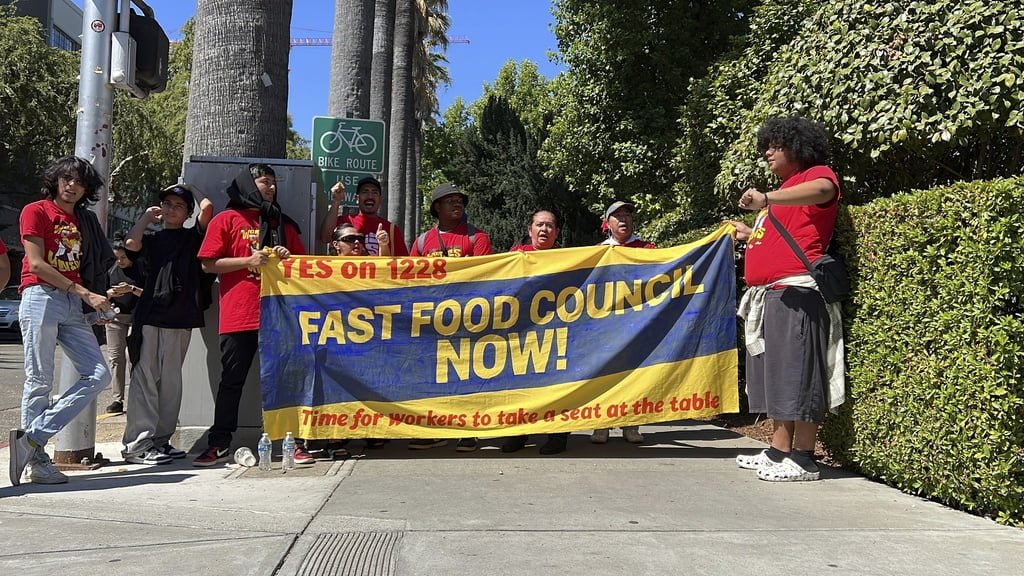
20 minimum wage California fast food, Fast food companies pull referendum agree to $20 minimum wage, For 35 years, Keith Miller has franchised Subway restaurants in Northern California. In that time, the minimum wage he must pay his employees has nearly quintupled. Customers, he said, continue to ask what happened to the “$5 footlong,” which was a Subway staple when the minimum wage was less than half of what it is now.
On Monday, minimum wage for fast food workers in California jumped to $20. The statewide minimum wage is $16, although some municipalities (including San Diego) have slightly higher base pay for workers within city or county boundaries.
“You keep kind of wondering when you’re going to break the camel’s back? And I think that’s our fear now is, to me, it’s kind of an experiment,” said Miller.
20 minimum wage California fast food: The Impact of a $20 Minimum Wage on the Fast Food Industry in California
California has been at the forefront of the fight for higher minimum wages, and in recent years, the state has seen several increases in the minimum wage. As of January 1, 2023, the minimum wage in California is set to reach $15 per hour for employers with 26 or more employees. However, there have been calls from activists and lawmakers to raise the minimum wage even further, with some proposing a $20 minimum wage specifically for the fast food industry.
The Arguments for a $20 Minimum Wage
Proponents of a $20 minimum wage for fast food workers argue that it is necessary to provide a living wage for these employees. They point out that many fast food workers struggle to make ends meet, even with the current minimum wage. A higher minimum wage would allow these workers to better support themselves and their families, reducing reliance on government assistance programs.
Advocates also argue that a $20 minimum wage would help address income inequality. The fast food industry is known for its low wages and high turnover rates, and many workers in the industry are stuck in low-paying jobs with little opportunity for advancement. A higher minimum wage could help lift these workers out of poverty and provide them with more opportunities for economic mobility.
The Potential Consequences
While the idea of a $20 minimum wage for fast food workers may sound appealing, there are concerns about the potential consequences of such a policy. Critics argue that a significant increase in labor costs could lead to job losses and reduced hours for workers. Fast food restaurants operate on thin profit margins, and a $20 minimum wage could force many establishments to cut back on staff or even close their doors.
Another concern is the potential for automation. If labor costs become too high, fast food restaurants may turn to technology to replace human workers. We have already seen the rise of self-ordering kiosks and automated burger-flipping machines in some establishments, and a $20 minimum wage could accelerate this trend.
Additionally, a $20 minimum wage for fast food workers could lead to higher prices for consumers. In order to offset the increased labor costs, restaurants may need to raise their prices, which could make fast food less affordable for many people, especially those on lower incomes.
Alternative Solutions
Instead of implementing a $20 minimum wage specifically for the fast food industry, some argue for a more gradual increase in the minimum wage across all sectors. This would allow businesses time to adjust to the higher labor costs and minimize the potential negative impacts on employment and prices.
Others propose alternative solutions to address the issue of low wages in the fast food industry. This includes providing tax incentives or subsidies to businesses that pay higher wages, implementing stricter regulations on working conditions, or encouraging the formation of unions to negotiate better wages and benefits for workers.
The Need for a Balanced Approach
While the idea of a $20 minimum wage for fast food workers may be well-intentioned, it is important to consider the potential consequences and explore alternative solutions. A balanced approach that takes into account the needs of both workers and businesses is crucial to ensure a fair and sustainable solution to the issue of low wages in the fast food industry.













Leave a Reply
View Comments